The game Puerto Rico is a classic. Sure, it has significant issues regarding theme: a colonist ship, and some opening moves that friends consider to be a little too scripted. (Let me guess: you started with a corn plot, so now you are going to buy the Market building with your first Builder action? Who knew???)
But for its time, some people considered the playtime and learning curve of Puerto Rico to be too much. (After setting up a game of Imperial Steam recently, I’ll politely say that I miss the “good ol’ days.”)
Enter San Juan. The card-game version of Puerto Rico, San Juan plays in about 30 minutes and can be taught in less than five. It simplifies many of the mechanics of Puerto Rico, while providing a rich experience for people looking to bridge the gap between longer games.
Some people use the term “filler” in a negative sense, but not me. I want fantastic, shorter gaming experiences that help fill the time between, before, or after the game night’s marquee events. I have even set up game nights meant only for filler games. One of my favorite game nights during the COVID era featured 6 games in 7 hours, all medium-to-long fillers that could be taught quickly.
For me, San Juan is the best of the bunch, for so many reasons!
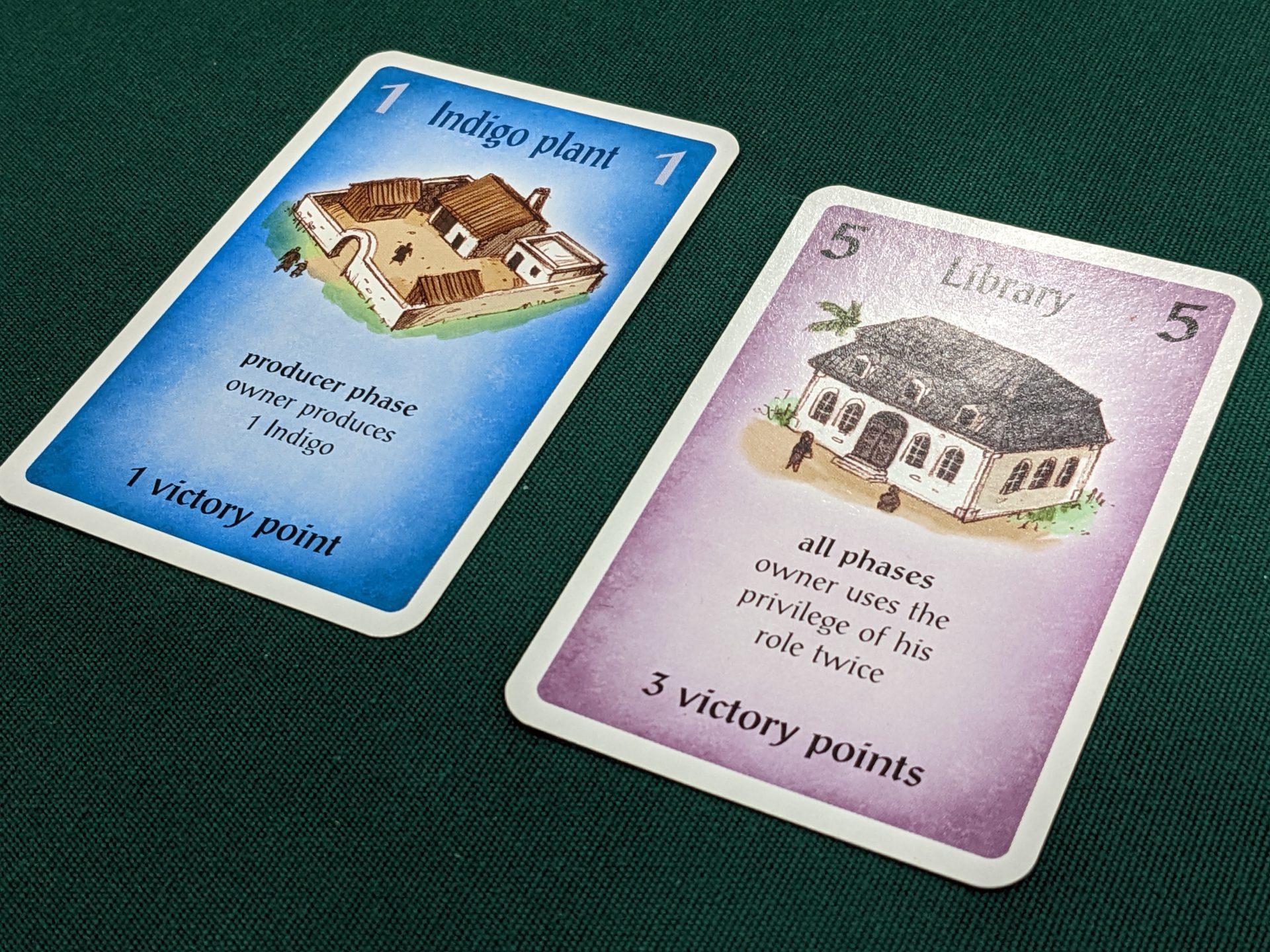
Puerto Rico, Faster
Alea, the division of Ravensburger which published the original Puerto Rico, is releasing Puerto Rico 1897 later this year. Needless to say, this re-release is going to face scrutiny to ensure the game’s theme is addressed, as these issues were not considered when the original game came out 20 years ago.
When it comes to gameplay, I hope they don’t change a thing. The original does lend itself to opening moves that feel too familiar to experienced players, but once the game gets rolling, it’s fun to see how players adapt to the state of the game world each and every turn.
It’s a fun, mid-level strategy title that I still revisit occasionally on my iPad when I’m traveling and can’t get other players to join me at a physical table. But when I’m sitting at a table, I want a taste of that Puerto Rico experience with friends, with something that plays fast.
Enter San Juan.
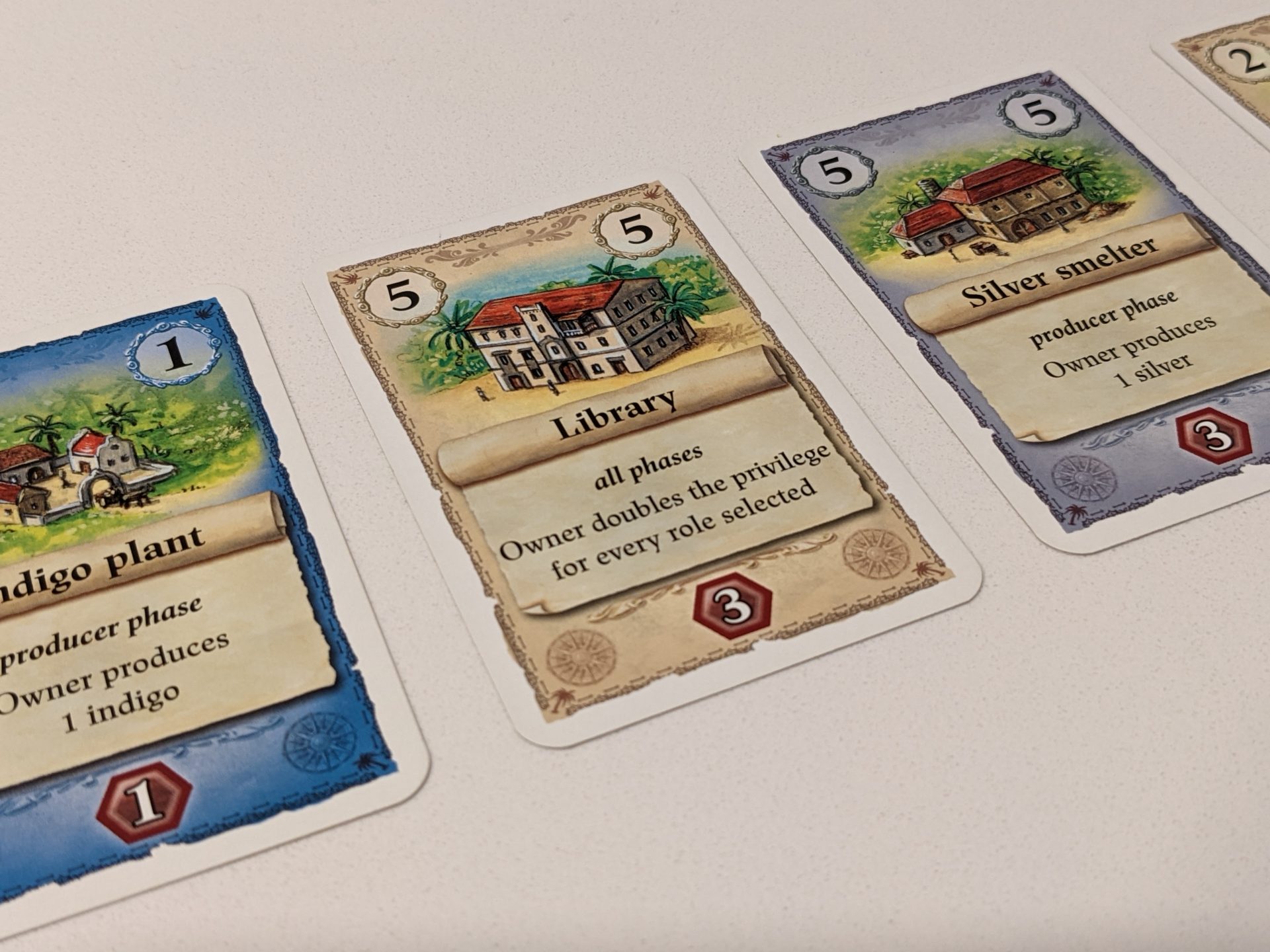
The goal is much simpler in this format: when someone “builds” a 12th card into the tableau in front of them, that signals the final round of play. Beginning with just a single card in their tableau—an Indigo production card—players will build other cards by spending cards from their hand equal to the cost listed in each card’s upper corners.
In each round, as with the base game, players will pick one of five roles which will dictate the next action, with those who picked that same action getting a slight benefit for doing so. Pick the Builder, and you’ll get a one-card discount for building a card in that round before other players. Pick the Prospector, and you’ll get cash whereas no one else gets a thing.
In Puerto Rico Buildings give you benefits. In San Juan, that is simplified with easier powers from the cards you build. And no actual, disparate goods are produced in San Juan—everything is a card. That indigo plant you start the game with? It “produces” indigo, which is really just a card. Cards can be played, spent, built, and produced.
(If this sounds familiar, you may be thinking of a game that borrowed some of these concepts a few years later: Race for the Galaxy.)
Cards are currency in San Juan, so everything is really easy to figure out. The Councillor role? Draw a bunch of cards, keep less of them. Producer? Draw cards from the top of the deck, place them on your production building cards. Trader? Turn in your production cards for…you guessed it, more cards. The slight wrinkle here is that when everyone trades, the market for goods/cards is slightly better or worse depending on which of the five trader tiles are drawn.
San Juan strips it all down to the cards. That’s why it works.
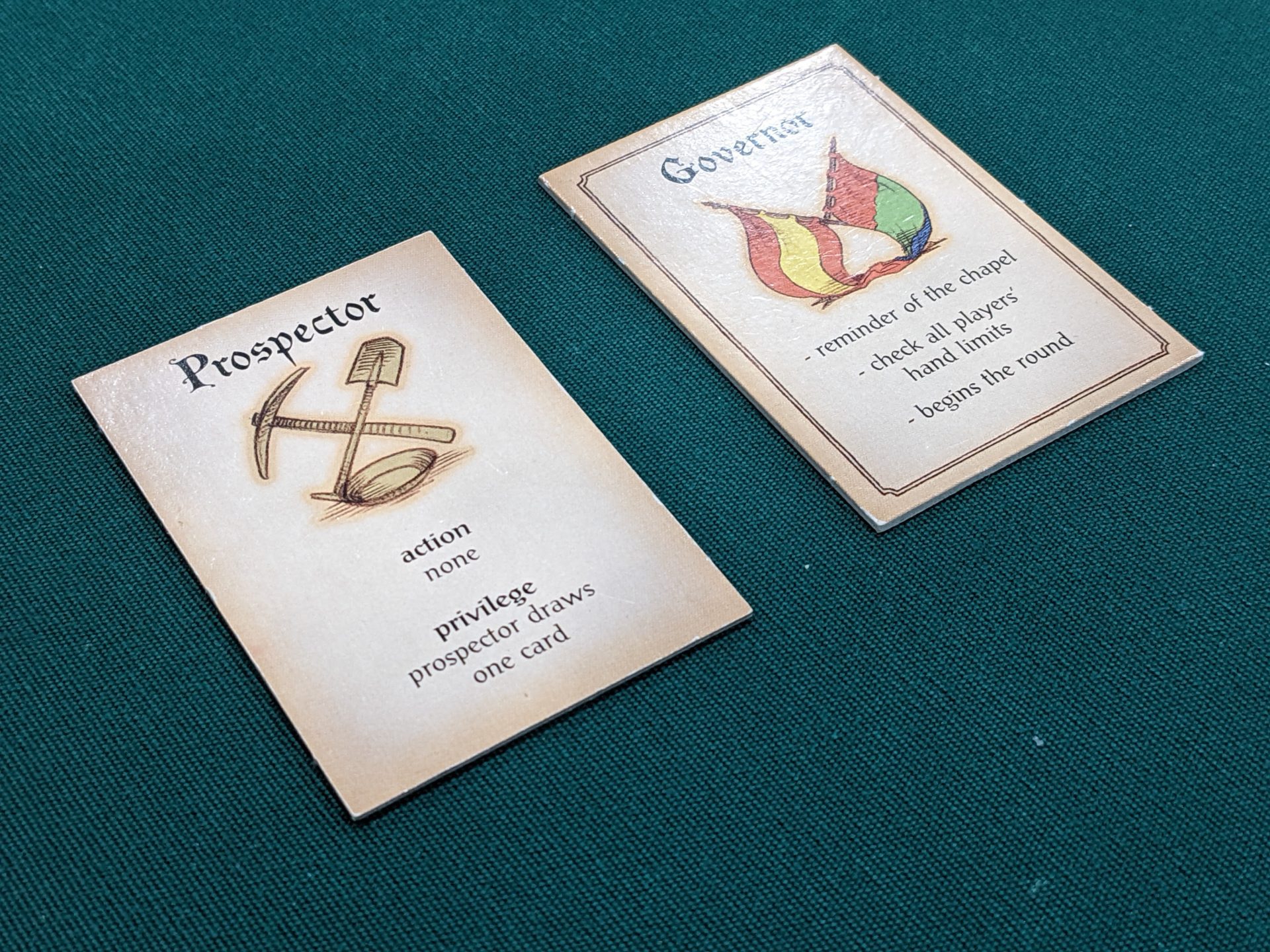
The City Buildings
San Juan—and the expansion “The New Buildings”, which is included if you bought the game at retail in the last 5-7 years—features a deck of 110 cards, roughly half of which are beige-backed City building cards.
These provide powers that change a player’s abilities during certain phases of the game. That’s where the magic comes in, as your turns get more and more exciting all game long if you can take advantage of these powers.
Add in the “6-Cost” buildings—similar to the end-game scoring buildings from Puerto Rico—and you have rich ways to change the game up every time you play.
But that still means the teach is quick. I can teach San Juan to almost anyone in about five minutes, less if they have played Race for the Galaxy or Puerto Rico. And I know many people who have sold their copies of Puerto Rico and stuck to only playing San Juan, now that they know both games.
I am one of those people.
San Juan just nails it, but it also gets away from all the uncomfortable questions of the base game. As a man of color myself, it’s hard to look past refilling the “colonist ship” each time someone takes the role of Mayor to empty out the boat of brown wooden discs, some of whom are going out to work in fields to reap the benefits of sugar and coffee mills for their owners.
Yeah.
In San Juan, there’s no question that similar things are going on, but the goal of becoming the city’s most prosperous business person doesn’t feel like it is coming at the expense of a colonized community. I’m playing cards to score points in San Juan. I’m top-decking card production to get more cards to build a Black Market, or a Well, or a Crane, or a Library, or a Palace. I’m drawing cards to get better, more playable cards for my engine.
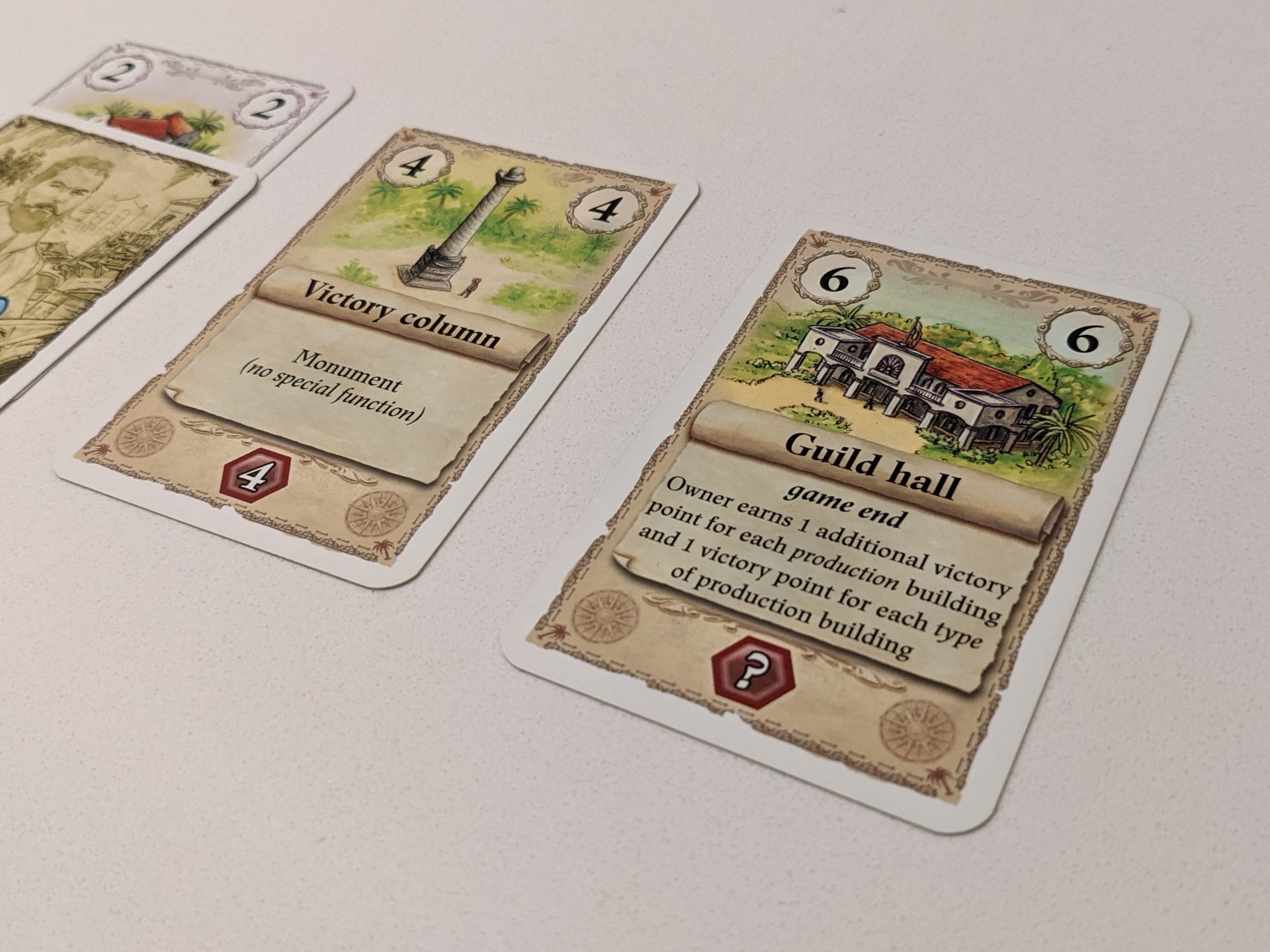
A Lock in My Collection
San Juan is fantastic. The quick-playing cousin to Puerto Rico checks all of the boxes in a package that I come back to again and again. It’s a little expensive to get your hands on now—at least, more expensive than a 110-card deck with a scorepad should cost!—but if you can lock one of these up on the secondary market, that is a worthy move.


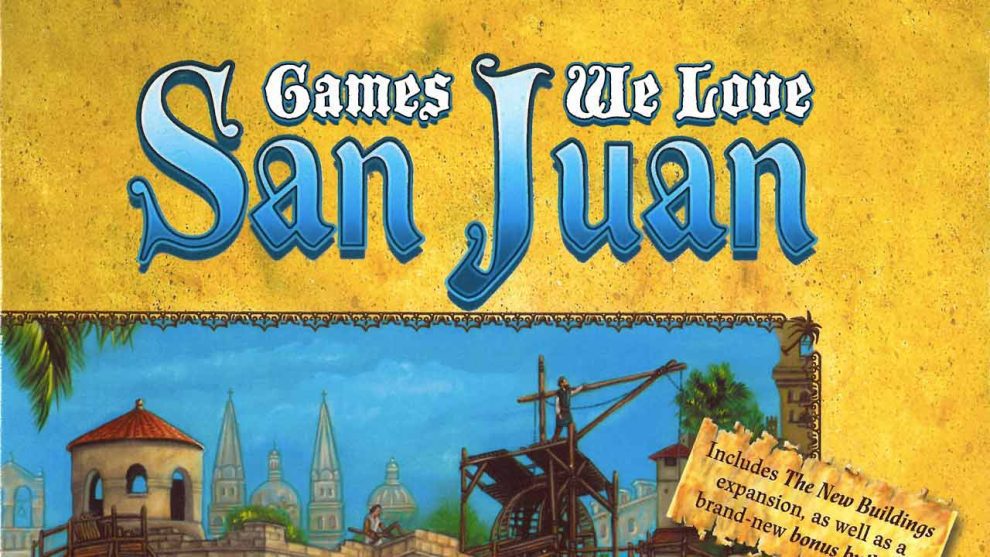

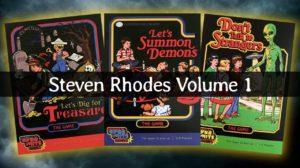
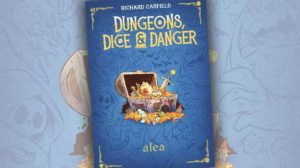
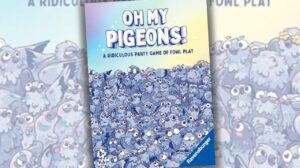
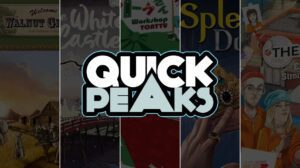




Add Comment